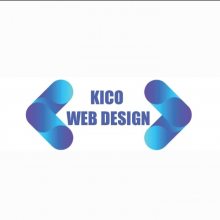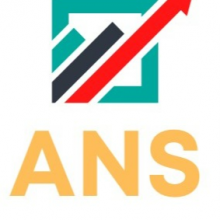
There are 27 Companies in Uganda
that provide E-Commerce Development Services!
Uganda’s IT Services market is predicted to reach UGX US$335.98m in 2025, with a CAGR 2025-2030 of 8.48%. The IT Outsourcing segment accounts for the vast majority of this, at around UGX US$123.71m in 2025. Other important contributors are broadcasting, data center services, cloud, IT, and BPO.
Discover Top IT Companies in Uganda specialized in E-Commerce Development including Big Commerce, Magento, Shopify, WooCommerce and more.
e-Commerce development services encompass the creation and enhancement of online platforms that enable businesses to sell products and services over the internet. It is closely related to web development, mobile app development, payment processing, and digital marketing.
According to Forbes, by 2026, the U.S. e-Commerce market is expected to reach the value of $8.1 trillion.
Handpicked companies • No obligation to hire • 100% risk-free
Featured Companies in Uganda
This month, the following E-Commerce Development companies managed to provide an outstanding service and support. It's worth taking a look.
Palnode is your go-to IT partner for cutting-edge website, app, and software development solutions.
Headquarters in Rwanda, ITS Ltd provides custom software, websites, and mobile apps using the latest technology to boost your business performance.
Waanverse Labs Inc, Uganda's Leading Technology Company.
Explore Top E-Commerce Development Companies in Uganda
Engineering secure, AI-powered software and scalable digital solutions to drive transformation for forward-thinking global enterprises.
The company specializes in providing a wide range of IT services, ensuring comprehensive technological support for businesses and individuals alike.
Kico Web Design is a professional web design and website development company in Kampala, Uganda
Founded in 2023, CodeToInnovate Africa empowers communities by bridging skill gaps, enhancing problem-solving, and driving digital transformation.
We provide holistic digital marketing that drives results: web design in Uganda, SEO, mobile app development, & social media marketing.
Loft is a design and development agency. We are at the intersection between art, technology and design.
Arm Genius website Design, SEO in Uganda, Design with purpose
Deepcode Innovations Limited is an ICT service provider base in Uganda aiming at providing her customers with innovative solutions to her customers
Flex your Brand
Business services and knowledge management including business set up registration, tax and consultancy , audit and outsourcing services
We know from research that 8 in 10 small businesses like yours have given up on managing your website because of how stressful it is yet you have to f...
Definite Creations® is an full service Digital Agency in Uganda offering compelling digital and marketing solutions including Website Development, Dom...
Empowering the Businesses by Providing Customised AI software solution, AGI, ML and Robotics.
Smart Choice Ug has been delivering exceptional website design, innovative software solutions, and Web Hosting in Uganda.
Your Partner For Your Digital Growth
Kiri Cyber Services is a cybersecurity, web development and web designing company. Basically, we focus on the Information Technology niche.
Callisto Technologies Uganda is a leading technology company based in Uganda.
We are a software development company in Kampala, Uganda. We develop websites, mobile apps and custom software solutions.
GICT AFRICA TECHNOLOGIES is a leading Software development, website design and hosting company in Uganda The Mobile Apps and Software that we develop
Uganda's leading eco-conscious technology solutions and service's provider. Focus on futuristic and cutting tech based deployment's.
Services:
We specialize in business technology solutions most especially Website designing and Development for companies and individuals in all Kampala.
- 1
- 2
Filter E-Commerce Development Companies in Uganda by Cities
Find the right tech company near you or from a specific city. Some of the best companies might be located in smaller cities.
Find more E-Commerce Development companies around the world
TechBehemoths is the world's most advanced and user-friendly platform to match IT Companies with real clients without hustle.
The IT Industry in Uganda: General Portrait
Uganda’s IT Services market is predicted to reach UGX US$335.98m in 2025, with a CAGR 2025-2030 of 8.48%. The IT Outsourcing segment accounts for the vast majority of this, at around UGX US$123.71m in 2025. Other important contributors are broadcasting, data center services, cloud, IT, and BPO.
Uganda’s combination of relatively stable governance, strategic location, and young and innovative population has made it an attractive destination for multinational companies. Several notable firms, such as Google, Microsoft, and SAP, have offices in Kampala, and some have based their entire African operations from these offices.
Why You Should Work With Ugandan IT Companies
Digital service providers in the cloud and BPO markets are primarily involved in the provision, rather than the development, of services, whereas Ugandan firms are more prevalent in the fintech and e-commerce markets. The physical technology required for the delivery of digital services is typically imported, and it is not clear that Uganda could produce these products more efficiently.
A key strength in the digital services market is the acceptance of mobile services. Any consumer solution entering the market would have to be mobile-compatible. Mobile healthcare services are expected to grow particularly rapidly as the sophistication of these offerings increases.
What to Pay Attention to When Working With Ugandan IT Companies And Web Agencies
On the consumer side, it is vital that any proposed digital service offering be mobile-compatible due to the prevalence of mobile usage in Uganda. Furthermore, smartphone penetration in the region is steadily increasing, thus increasing the sophistication of viable digital service offerings.
Given the acceptance of fintech by the Ugandan population, a possible route to entry in the consumer market is to acquire one of the many smaller fintech firms in the industry. This would resolve some of the primary barriers to entry, most specifically bureaucratic red tape and a lack of local knowledge.
On the corporate side, the most effective route to entry is likely through partnerships with smaller local resellers. This model is already popular in the Ugandan market. A key differentiating feature here will be how well the service adapts to the Ugandan market.
How Reliable Are Ugandan-based IT Companies?
Considered to be one of the biggest African IT hubs, Ugandan web agencies and IT companies compete only with Ethiopian ones in terms of reliability. As many foreign companies have already invested and thus developed the local IT infrastructure and industry overall, Ugandan IT companies find it easier than other neighboring countries to enter the global market and provide their services at accessible prices.
How Does the Ugandan IT Industry Relate to the Neighboring Countries?
Uganda is actively trying to establish itself as a key ICT hub in the East African region. The country appears to be making good progress in this regard, helped by having a strong connectivity infrastructure and a young, innovative population. Despite this, the country currently faces considerable political uncertainty, and issues surrounding the transparency of tenders remain a major barrier to growth.
Although Uganda’s score for the metric measuring the economic impact of ICT is not high in absolute terms, it ranks 54th in the world. This supports the conjecture that businesses, government, and consumers will be receptive to new technologies, as ICT has already had a substantial impact on the Ugandan economy.
How will ICT Impact Uganda in 2025?
Uganda has lost one of the telecom investors and operators on the market, Africell. The change has an immediate effect on the labor market and telecom industry. The reasons behind leaving Uganda are in limited possibilities the country offers to the telecom operator. For Uganda, 2022 is a challenging year in ICT, with a low internet penetration rate, tech education, and competitiveness.
In 2025, the ICT in Uganda has a goal of becoming a digitally driven society in the economic and public services sectors. The government implemented the Digital Transformation Roadmap (2024-2028) with a focus on digital agriculture, mHealth solutions, youth skilling, and scaling Uganda’s BPO sector, leading to more jobs and unlocking economic resilience.
What is E-Commerce Development and what are its benefits for your projects?
e-Commerce development services encompass the creation and enhancement of online platforms that enable businesses to sell products and services over the internet. It is closely related to web development, mobile app development, payment processing, and digital marketing.
According to Forbes, by 2026, the U.S. e-Commerce market is expected to reach the value of $8.1 trillion.
Businesses can experience numerous benefits by leveraging e-Commerce development services from specialized IT companies:
- Global Market Reach: Online platforms enable businesses to reach a vast customer base worldwide, breaking geographical barriers.
- Enhanced Customer Experience: User-friendly interfaces, personalized recommendations, and streamlined checkout processes boost customer satisfaction and retention.
- Increased Sales and Revenue: Effective e-commerce platforms drive conversions, upselling, and cross-selling opportunities, leading to revenue growth.
- Scalability and Flexibility: Robust e-commerce solutions accommodate business growth, adapting to changing market demands and expanding product catalogs.
- Streamlined Operations: Integrated inventory management, order processing, and automated workflows streamline operations, improving efficiency.
When selecting an e-Commerce development service provider for a project, you may want to consider the following criteria:
- Experience and Expertise: Look for companies with a proven track record in developing successful e-commerce platforms, preferably in your industry.
- Technology Stack: Assess the provider's proficiency in popular e-commerce platforms (e.g., Shopify, Magento, WooCommerce) and their ability to customize solutions to your specific requirements.
- Design and User Experience: Prioritize companies that excel in creating visually appealing, intuitive, and mobile-responsive e-commerce websites.
- Security and Payment Integration: Verify that the provider adheres to stringent security standards and can seamlessly integrate secure payment gateways.
TechBehemoths.com can assist in choosing the best e-Commerce development companies for your projects. With a vast directory of over 7,800 IT companies offering e-Commerce development services, TechBehemoths.com simplifies the selection process. The platform provides comprehensive profiles, client reviews, and ratings to help you evaluate and compare different service providers. You can leverage the advanced search filters to narrow down your options based on industry expertise, location, and project requirements, ensuring a tailored match for your e-commerce development needs.























